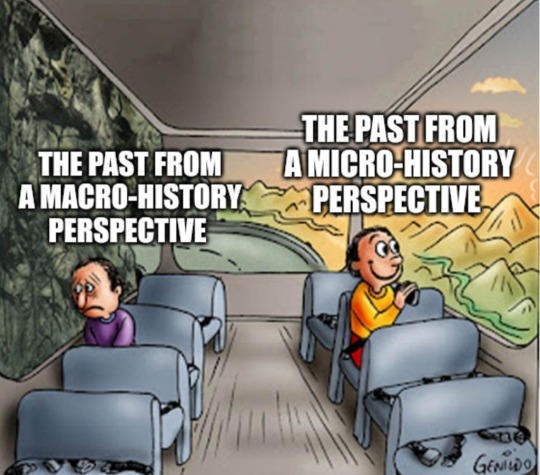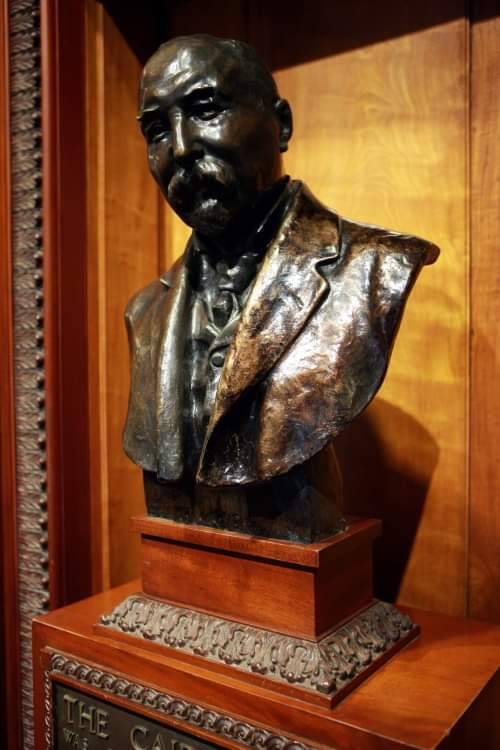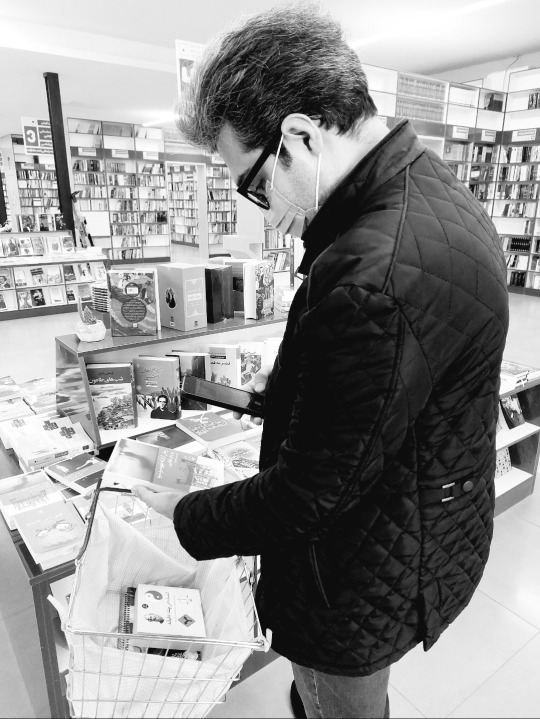#Anthropologist
Explore tagged Tumblr posts
Text

Stella Nyanzi
Gender: Female
Sexuality: Queer
DOB: 16 June 1974
Ethnicity: Ugandan
Occupation: Activist, poet, writer, medical anthropologist, scholar
Note: One of the first scholars to publish research on African homosexuality. International press has called her "one of Africa's most prominent gender rights activists," "a leading scholar in the emerging field of African queer studies," and a leader in the fight against "repressive anti-queer laws" and for "freedom of speech."
#Stella Nyanzi#queerness#lgbt rights#queer rights#lgbtq#female#queer#1974#black#african#ugandan#activist#poet#anthropologist#scientist#scholar#writer#first#popular#popular post
149 notes
·
View notes
Text

Letting my anthropologist side show
#anthropology#anthropologist#history#historical anthropology#archeology#reading Microhistories by Giovanni Levi rn#and it shows
1K notes
·
View notes
Text
Review of The Horse, the Wheel, and Language: How Bronze-Age Riders from the Eurasian Steppes Shaped the Modern World by David W. Anthony

I will be upfront, it is a very technical book. If you are not well versed in the anthropological categorizing of cultures and time periods of the areas being discussed it can be very difficult to keep up with the more finite points the author is making. That being said, I had never heard of any of the specific cultures being discussed in the Danube Valley and was still able to enjoy this book and its well put together analysis of various aspects of language, culture, technological developments and shifts in behaviors and place.
If you are especially interested in any of the major themes this book discusses (which is in all honesty is an extensive list including but not limited to; the development of Indo-European language, the time periods and locations as well as likely motivation for domestication of various livestock types, the cultural effects of technological developments on the peoples of the Eurasian Steppes and their migration/trading patterns) I do highly recommend. It is heavy reading but extremely illuminating.
#The horse the wheel and language#David W Anthony#historical anthropology#anthropologist#anthropology#ancient languages#language#historical linguistics#linguistics#proto indo european#indo european#steppes#eurasian#eurasian steppe#horse#horses#husbandry#burials#Cattle#sheep#book review
176 notes
·
View notes
Text
I don't usually liveblog but Rae being an Anthropologist nerding out over a new culture is making me so so happy -
My anthropologist self feels so seen -
EDIT/ADDITION: I AM SO SO CALM ACTUALLY THIS IS SO FUN ??!?
Ahem. I mean.
Okay so I am an anthropologist, minor in archaeology. Like that is my whole thing. I have never seen a well-done anthropologist in fiction.
AND THEN THERE IS RAE FJUCKING MORNINGSTAR ACTING EXACTLY LIKE ME AND MY ANTHRO FRIENDS DO IN SEMINARS /vvvpos ?!?!? EXCUSE ME???
Ahm. So calm /j
In all seriousnes though, this stream is so fun, I am genuinely feeling quite represented and this is so relatable and I am just happy rn.
Yes.
#fable smp#fablesmp#rae morningstar#fable smp rae#liveblogging#anthropologist#anthropology#i have never seen a fictional anthropologist be this accurate and I am so happy about it -
88 notes
·
View notes
Text

#egypt#ancient egypt#ancient architecture#pyramid#egyptian pyramids#sphynx#pyramids#pyramidsofgiza#ancient aliens#ancient history#pharoah#architecture#history#architectural history#history stuff#history side of tumblr#history of man#history aesthetic#history and culture#egyptian#egyptology#egypttravel#egyptian history#anthropology#ancient civilizations#ancient cultures#anthropologist#sphinx#archaeology#archaeologists
18 notes
·
View notes
Text

Grover Krantz (1931-2002) was an anthropologist who donated his body to the Smithsonian Museum to show how skeletons can be educational tools.
His only condition was that he wanted his beloved dog next to him even after death. The museum honored his request.
16 notes
·
View notes
Text
Ethnocentrism
-- assumption that one's own culture is correct or superior
-- other ways of living are seen as wrong or ignorant
-- combated by cultural relativism
.
Patreon
#studyblr#notes#my notes#anthropologist#anthropology#anthropology notes#cultural anthropology#ethnography#culture#sociology#ethnography notes#sociology notes#cultural anthropology notes#anthropology studyblr#world cultures#social science#science#scienceblr#social psychology#social sciences#note cards#diversity#humans#human behavior
14 notes
·
View notes
Text
"Try to learn something about everything and everything about something."
Thomas Henry Huxley - (1825-1895) - English Biologist and Anthropologist
#quoteoftheday#quotes#quotesoftheday#quotes of tumblr#life quotes#inspirational#life quote#biologist#anthropologist#anthropology#daily quotes#learning something new#learning#education#educational#thomas henry huxley
9 notes
·
View notes
Text
i find it so sad as an anthropology student that people only really care about forensic anthropology??? i'm in love with people and you want me to talk about their remains??? no!!!
#anthropology#forensic anthropology#anthropologist#anthropologists#life#people#i love alive people!#bones
8 notes
·
View notes
Text


James Key Caird, Scottish jute baron and mathematician was born January 7th 1837 in Dundee.
Many of you outwith Dundee might not know of James Caird, but Dundee's Jute baron amassed a fortune through the jute trade in the city and donated up to £100,000 for the building of a new City Hall and Council Chamber that beares his name, Caird Hall, of which I took and posted pics of last week.
Caird was the son of linen and jute manufacturer Edward Caird. He was to become one of the city's most successful entrepreneurs, who used the latest technology in his jute mills. Established by his father in 1832, the Ashton Mill was located in the Hawkhill district of Dundee. Caird rebuilt it in 1876, and extended it in 1887 and 1908. He bought the Craigie Mill on Arbroath Road in 1905. Between his two mills, he employed around 2000 workers.
Having grown enormously wealthy, Caird became a generous benefactor. He gave substantial sums to extend the Dundee Royal Infirmary and gifted both the aforementioned Caird Hall, which dominates City Square, and Caird Park in the north of the city. The Marryat Hall, gifted by his sister Mrs Emma Grace Marryat, links to the Caird Hall.
Beyond Dundee, he funded the Insect House at London Zoo and paid for ambulances for use in the Balkan Wars . Caird also funded Sir Ernest Shackleton's Antarctic expedition of 1914-16, and Shackleton's boat was named in his honour, as was the Caird Coast of the Weddell Sea.
Caird was knighted in 1913 and was awarded an honorary degree by the University of St. Andrews. Becoming a recluse in his latter years, he died at his country seat, Belmont Castle near Meigle, and was buried next to his father in Dean Cemetery in Edinburgh.
He left money which was eventually used to purchase Camperdown Park for the city.
15 notes
·
View notes
Text

Amaranta Gómez Regalado
Gender: Transgender woman / Muxe
Sexuality: N/A
DOB: born 1977
Ethnicity: Native Mexican
Occupation: Social anthropologist, activist, researcher, columnist
Note: In October 2002, a car accident fractured her left arm to such an extent that it had to be amputated.
#Amaranta Gómez Regalado#Amaranta Gomez Regalado#lgbt#lgbtq#bipoc#transgender#trans woman#1977#native#poc#mexican#muxe#indigenous#scientist#activist#researcher#columnist#anthropologist#disabled
102 notes
·
View notes
Text
How Climate Change is threatening Culture's Worldwide
NO.1
Mass relocations are a thing that is set to happen thanks to climate change. And as more natural disasters happen that circuits the need for climate change education, more doomsday scenarios appear instead of healthy solutions to help save the planet--with the water rising from melting ice caps, it is destroying island and southern communities, and producing record number droughts in different sides of the planet. Why then does the media frame climate change as something inevitable, and how does that produce apathy, not just in regular people, but in these companies as well?

NO. 2
The research about climate change is all about education; informing the public about counter-options to reduce carbon levels in the air. I know this could benefit one person, if not the whole group, and that is what’s important. So how do we define apathy toward climate change? Well, the definition of apathy first is a lack of feeling or emotion towards something. It is based on a variety of subjects, like race, sex, education, age, food, culture, groups of people, etc. How does apathy relate to other negative concepts like indifference, and how are those emotions dangerous? ‘’How does apathy come to exist? Through ignorance of a toxic and uncoordinated action. Framing is used as an institution and illustrates how it shapes media framing in a toxic event. Even in systems who are supposed to help the average person, are people seen to have a ‘tendency to behave in accordance with what they see as being in their own interests.’’

NO. 3
From “Climate Change and Planned Relocation in Oceania.” Sicherheit Und Frieden (S+F) / Security and Peace, vol. 34, no. 1, 2016, pp. 60–65: ‘‘The sinking islands have become a symbol of the consequences of manmade global warming. The foreshadowing of climate change-related environments and social developments that will affect other parts of the world sooner rather than later. In the current academic and political discourse, migration figures prominently among the social effects of climate change, and climate change-induced migration-conflict nexus, and research and findings have become ever more complex and sophisticated, trying disentangle the ‘long and uncertain casual chains from climate change to social consequences like conflict.’’
youtube
NO. 4
In conclusion, the Guna Yala tribe will not be the last island community to relocate because of the rising sea level, thanks to climate change. In fact, billions of people are going to be fleeing, and forced to relocate because of the threatening climate, and the United Nations Framework Convention for Climate Change understands (UNFCCC). From Climate Change and Planned Relocation: HOW CLIMATE RESETTLEMENT CAN WORK FOR COMMUNITIES. Danish Institute for International Studies, 2017: Entire cultures and societies will have to cope with the ‘‘ability to foster broader resilience-oriented solutions driven by the livelihood needs and strategies of the communities in question. When relocation is found to be necessary, [like in the Guna Yala tribe’s case], it should be approached as an expansion of existing livelihood strategies and mobility patterns, not an end to them.’’
#climatechange#classism#race#race in media#relocations#climate#apathy#panama#news#sociology theories#anthropology#anthropologistexplains#anthropologist#society#culture#culturaltopics#climaterelocations#Youtube
65 notes
·
View notes
Text
y’all my anthropology class is about to read “Body Rituals Among the Nacirema” i am so hyped right now
#tumblr brainrot#anthropology#college#college life#nacirema#anthropologist#body rituals among the nacirema#college course
27 notes
·
View notes
Text
https://forms.gle/BSEPHAEE1Xz6f4VB9
Attention fellow fandom enjoyers! I have made a form to gather info on how fandoms are impacted by alternate universes, or aus! If you filled this out, it would greatly help my research!
#fandom anthropology#anthropologist#anthropology#fandom#fandoms#fandom studies#fandom analysis#fandom history#fandom culture#fandom study#fan culture#internet culture#au#aus#alternate universe
41 notes
·
View notes
Text
Getting an anthropologist degree so that I can like bones without ppl thinking I’m weird
2 notes
·
View notes
Text
What is the difference between macro and micro evolution?
Dr. Morteza Golsorkhi

https://instagram.com/dr.golsorxi
Microevolution and macroevolution are both types of genetic changes in a population over generations, but they differ in scale and time frame:
MicroevolutionOccurs within a single population over a short period of time, like a few generations. It results in small, noticeable changes, such as an increase in the frequency of a gene, but doesn't lead to the emergence of a new species.��For example, the frequency of the gene for dark wings in beetles might increase from one generation to the next.
MacroevolutionOccurs over a much longer period of time, like millions of years, and can affect taxa above the species level. It can result in larger changes, such as the evolution of new structures or the emergence of new species. Macroevolution is the accumulation of microevolutionary changes over time, to the point that a population is distinct from other populations and is considered a new species. For example, the evolution of mammal diversity over the past 100 million years can be explained by modifications to existing organs, like the evolution of elephant tusks from canine teeth.
summary 👇🏻
(Microevolution happens on a small scale (within a single population), while macroevolution happens on a scale that transcends the boundaries of a single species.)
3 notes
·
View notes